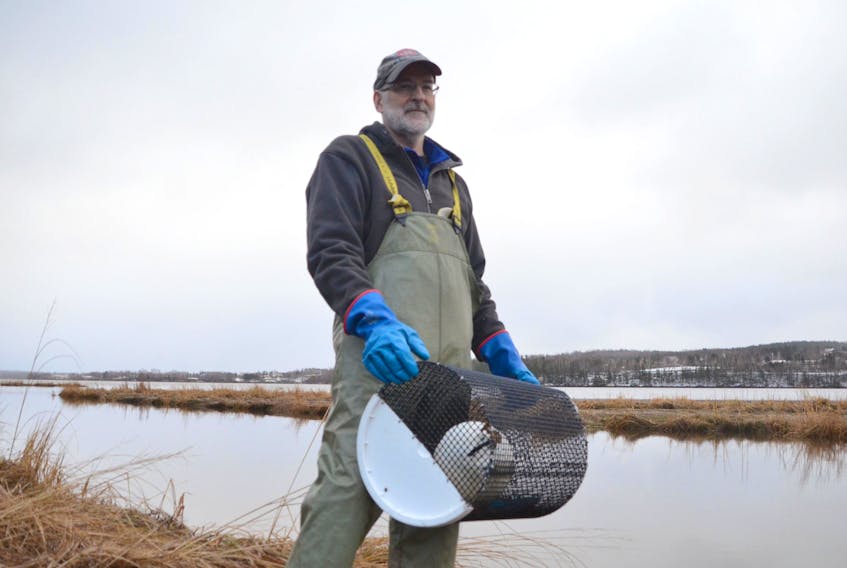The opinion piece (“St. F.X. marine ecologist myth busts Northern Pulp effluent pollution,” Dec .7) and videos by Jim Williams in the weekend Chronicle Herald made a number of highly debatable claims including:
- that treated effluent is not toxic, and
- that bacteria break down the effluent into just water and CO2.
If pulp effluent is as safe and simple to deal with as Mr. Williams claims, why would five federal departments, including Fisheries and Oceans and Environment and Climate Change, have raised alarms about errors and lack of critical information in Northern Pulp’s focus report?
The following quotes give a taste of the serious issues raised by other scientists in response to Northern Pulp’s proposed new effluent treatment facility. This information was submitted to the Nova Scotia Minister of Environment as part of the review of Northern Pulp’s focus report. The full submissions are posted online at https://www.friendsofthenorthumberlandstrait.ca/focus-report-must-reads.
Separately and together, these submissions show that the minister of environment does not have a scientific basis to approve Northern Pulp’s project.
“The proposed treatment facility is not appropriate because it will not sufficiently remove AOX which is composed of toxic organic chlorides including PCBs and chlorinated dioxins and furans. Nor does the facility remove excess nitrogen and phosphorous which can lead to eutrophication and ultimately harmful algal blooms (HABs).”
- Lynn Cameron, organic chemist, Ph.D.
“The negative physiological effect of BKPME (Bleached Kraft Pulp Mill Effluent) has been well described on fishes, including depressed immunity, altered reproduction and decreased overall resilience ... (furthermore) there is no description or characterization of the potential for components of the predicted BKPME for bioaccumulation … There is limited-to-no information regarding the true chemical characteristics of the proposed effluent.”
- Dr. Laura Braden, director of molecular genetics and biotechnology, AquaBounty Canada, adjunct professor, department of veterinary medicine, Atlantic Veterinary College.
“My major concern is that the one-month simulation period is not sufficient to evaluate the cumulative impacts of effluent waters released continuously for several years, possibly decades … the focus report does not adequately address the risks of bioaccumulation of toxins in the marine environment. … The short duration (fish habitat) survey … was unable to capture seasonal variations in fish communities and fish habitat; therefore, it has limited value as a baseline survey …”
- Dr. Arnauld LeBris, research scientist, coastal and fisheries ecology, Fisheries and Marine Institute, Memorial University.
“The exclusion of many metals from the list of COPC (Chemicals of Public Concern) and minimal information on bioaccumulation is concerning as metals are known to be toxic to American Lobster.”
- Dr. Andrea Battison, principal consultant, Crustipath.
“The Veolia expected performance of the proposed ETF are overly optimistic given the results of the lab study presented in the Focus Report … the authors incorrectly imply that organic halides from bleach Kraft pulping processes are short-lived contaminants in the environment.”
- Keith Laidig, organic chemist, Ph.D.
“Stantec, Ltd. conducted an updated receiving water study to assess the near- and far-field mixing and dilution of effluent discharged from the proposed outfall at site CH-B. They also conducted a study to assess the transport of suspended particulate matter from the outfall … these studies are flawed and provide no evidence that the environmental impact of the outfall will be minimal.”
- Dr. Oliver Fringer, Stanford University, oceanographer & expert in modelling coastal systems.
“... the geological and geophysical data illustrate that there are too many risks to consider putting a pipeline along the proposed (marine) route. Contrary to demonstrating that this is a good candidate for the pipeline routing, the various data highlight multiple mechanisms by which damage could be sustained to the pipeline.”
- Alain Murphy, marine geologist, Ph.D.
“The air quality analysis included with the focus report should be considered unreliable and incomplete. The input data is not site-specific and the chosen model is not appropriate for a coastal location with complex terrain.”
- Elaine MacDonald, environmental engineer, Ph.D.
“Consensus within the scientific and technical community is that COPC (Chemicals of Public Concern) disposal, particularly those identified as endocrine disruptors and persistent … pollutants in marine environments is of mounting concern … and that conventional treatment options (including activated sludge processes as proposed in this ETF) are considered to be insufficient to address concerns regarding commercial fisheries.”
- Nexus Coastal Resource Management Ltd.
Jill Graham-Scanlan, president of Friends of the Northumberland Strait, lives in Pictou.









